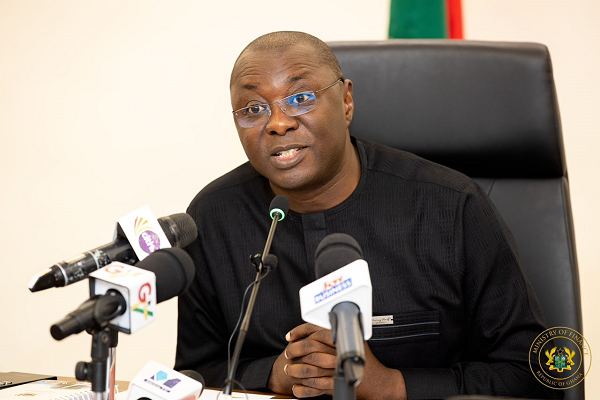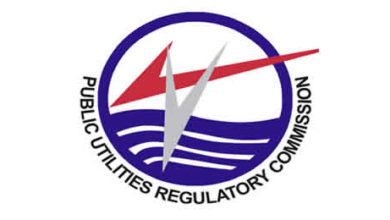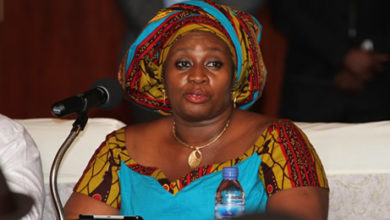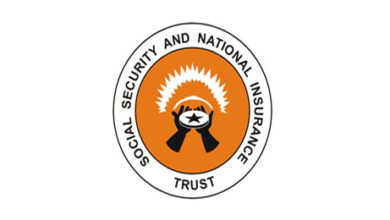CPI ranking: Government’s effort will pay off soon, says minister

The deputy minister of information, Fatimatu Abubakar, has expressed optimism that the investment in digitisation by the government in recent times will contribute greatly to reducing corruption in the coming months.
Ghana scored 43 out of a highest possible clean score of 100 in the latest Corruption Perceptions Index (CPI) to place 73rd out of 180 countries. In sum, Ghana made no advancement on the 43 it scored in the 2020 rankings.
The Ghana Integrity Initiative believes this development shows that the government has failed to make progress in tackling corruption in the year under review.
Different trend analysis
However, speaking to Asaase News, Abubakar said the country has not performed badly as has been suggested in some quarters.
“… Let us establish the fact that what this government inherited in 2017 was an average of 40. And the measurement is such that the lower you score, the more corrupt you are,” Abubakar said.
“So, if you look at the trends from 2017, you will realise that no matter how small the figure is, Ghana has been stepping up. From 2017 to 2018 we were up from 40 to 41 and then in 2020 we moved a notch higher,” she said.
Abubakar added: “In 2021, we didn’t record any [extra] point, but it has to be also appreciated that we haven’t lost a point. If you look at the trends or you draw a bar chart, there will be an appreciation that the government’s effort, even if [our score] is not going up, ought to reduce our score [for graft] on the global Corruption Perceptions Index.”
“And [that] is because of the investment that the government has made and continues to make in the area of digitalisation and actually assisting institutions to help with the fight in terms of disbursement of funds, in terms of support that government gives to the Office of the Special Prosecutor, the Auditor General’s office and other institutions,” she said.
Ghana ranked 73rd out of 180 countries
Ghana scored 43 out of a highest possible clean score of 100 in the 2021 Corruption Perceptions Index (CPI) to place 73rd out of 180 countries. It ranked 75th in the 2020 index.
A statement issued by the Ghana Integrity Initiative (GII), the Ghana chapter of Transparency International, said the 2021 CPI analysis shows that Ghana failed to make progress in the fight against corruption in the course of the year, as 43 is exactly the same as the country’s score in 2020.
The CPI draws on 13 data sources which capture the assessments of experts and business executives of how badly a number of corrupt behaviours dogs the public sector. The survey uses a scale of zero (highly corrupt) to 100 (very clean).
The 2021 index shows Botswana (55), Lesotho (38), Eswatini (32), Niger (31), Nigeria (24), the Comoros (20) and South Sudan (11) at historic lows. Over the past decade, 43 countries in sub-Saharan Africa have either declined or made no significant progress.
Denmark, Finland and New Zealand topped the 2021 CPI with 88 points each. Syria, Somalia and South Sudan are at the bottom, with 13, 13 and 11 points, respectively.
Significant changes
Since 2012, Botswana (55), Liberia (29), Mali (29) and South Sudan (11) have declined significantly on the index.
Only six countries in the region have improved their score significantly over the same period.
These are Seychelles (70), Senegal (43), Ethiopia (39), Tanzania (39), Côte d’Ivoire (36) and Angola (29).
Ghana’s international score of 43 puts her in ninth place in the sub-Saharan region, on a par with Senegal, out of 49 black African countries on the 2021 CPI index.
GII’s recommendations
Specifically for Ghana, GII recommends:
- Enhance institutional checks on power. Public oversight bodies, including anti-corruption agencies and the supreme audit institution, must operate fully independent from the executive as their mandates stipulate.
They should be continuously well resourced, with budgets allocated to them fully disbursed, and empowered to investigate effectively and sanction corruption timeously.
- Empower citizens to hold power to account. Agencies of state responsible for guarding the rights of citizens should take an active role in ensuring expeditious investigation of violations of the rights of civil society/media activists as well as human rights defenders, and should facilitate justice for crimes against all. Parliament and the courts should also be vigilant in preventing executive overreach.
- Sanction the corrupt to serve as a deterrent. Ghana is touted to have considerable anti-corruption frameworks, including laws of sanction. However, the country has not been strongly committed enough to sanctioning corruption, particularly political corruption, as has been shown in recent years.
Government and state anti-corruption institutions must work, in effect, towards making corruption a high-risk and low-gain venture in order to reduce the incidence of abuse of power, impunity and corruption.
- Improve transparency and accountability in political party and campaign financing. The Electoral Commission should be held accountable to ensure the enforcement of the Political Parties Act 2000 (Act 574), particularly Section 21, which relates to the disclosure of funding sources by political parties.
Parliament should also amend Act 574 to include disclosure of funding sources for candidates contesting presidential and parliamentary elections. There should also be a ceiling on how much can be raised and spent by candidates contesting these elections.
- Promote efficient public service delivery and anti-corruption through digitisation. Evidence from the governments ongoing digitisation projects suggests that automated processes within relevant public institutions (such as GRA) have reduced human contacts and also have the potential to help reduce corruption.
The government should, therefore, expedite its digitisation programme and extend electronic services to all ministries, departments and agencies (MDAs), as well as a digitisation of services that are in high demand by citizens, must be prioritised.





